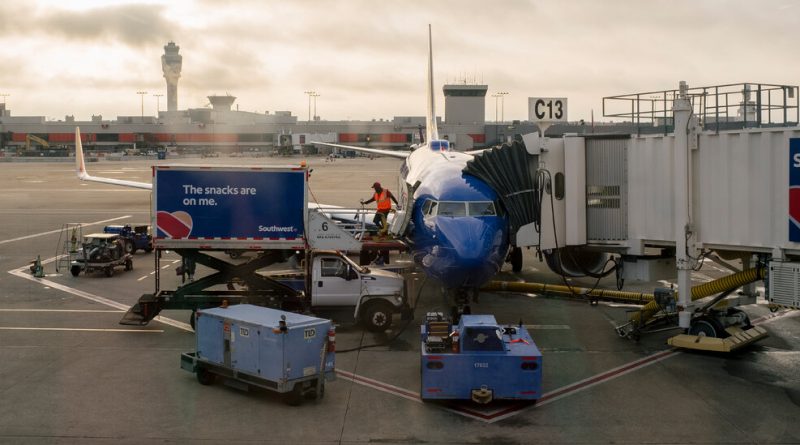U.S. Moves to Improve Airplane Bathrooms for People With Disabilities
[ad_1]
The Transportation Department announced on Wednesday that it had finalized new regulations to require more commercial aircraft to have accessible bathrooms, a long-awaited step to address complaints from disabled travelers about the difficulties of flying.
Under the regulations, new single-aisle planes with at least 125 seats will eventually be required to have at least one lavatory large enough for a disabled passenger and an attendant to enter and move around in. Twin-aisle planes are already required to have an accessible lavatory.
“Traveling can be stressful enough without worrying about being able to access a restroom,” Transportation Secretary Pete Buttigieg said in a statement. “Yet today, millions of wheelchair users are forced to choose between dehydrating themselves before boarding a plane or avoiding air travel altogether.”
The finalized regulations came out of a lengthy effort by the Transportation Department, dating back to the Obama administration, to develop new rules intended to improve air travel for people with disabilities. In 2016, an advisory committee established by the department called for accessible bathrooms on new, larger single-aisle planes, and the department proposed new regulations last year to carry out that recommendation.
Airlines have increasingly used single-aisle planes on lengthy flights, worsening the discomfort for disabled travelers who cannot use existing lavatories.
The new requirement for accessible lavatories does not kick in immediately. It will apply to new single-aisle planes that airlines order beginning in 2033 or that are delivered beginning in 2035. But that timeline is faster than what the advisory committee laid out in 2016 and what the Transportation Department proposed last year.
The new regulations also include other steps meant to improve air travel for people with disabilities, such as installing grab bars in lavatories on certain new planes.
Jani Nayar, the executive director of the Society for Accessible Travel & Hospitality, a nonprofit organization, said that people with disabilities have sometimes avoided air travel altogether and that larger lavatories would allow travelers in wheelchairs to fly more comfortably.
“People are not very happy with dehydrating themselves so they can travel or using a catheter or leg bag,” Ms. Nayar said.
Heather Ansley, the chief policy officer for Paralyzed Veterans of America, said the new regulations were the result of decades of advocacy to ensure that airline passengers with disabilities could have their basic needs met while traveling and would not have to put their health at risk to fly. The veterans’ organization sued the Transportation Department during the Trump administration in an effort to push the agency to issue new regulations on accessible bathrooms.
“This really goes a long way in saying that we recognize that passengers with disabilities are people that deserve to have dignity and, just like every other customer, should have a chance to use a lavatory if they need to,” Ms. Ansley said on Wednesday.
In a statement on Wednesday, Hannah Walden, a spokeswoman for Airlines for America, said, “U.S. airlines fully support accessible lavatories on single-aisle aircraft and have been voluntarily working with the disability community, the Department of Transportation and industry stakeholders for seven years on solutions.”
The department’s announcement on Wednesday came on the 33rd anniversary of the signing of the Americans With Disabilities Act by President George H.W. Bush in 1990. That law does not apply to air travel, but another federal law, the Air Carrier Access Act, bars airlines from discriminating against people with disabilities.
Do you work in aviation? The Times wants to hear your story. Please share your experiences with us below, and you can learn more about our reporting here. We especially want to hear from people who work for (or used to work for) airports or airlines, or who are part of government agencies that help keep the aviation sector running. We won’t publish any part of your submission without your permission.
